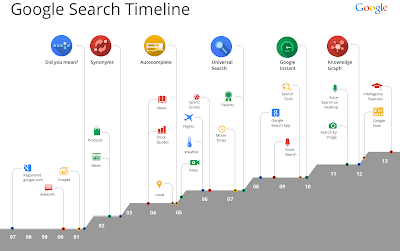Fifteen years on—and we’re just getting started article tells that Google Search is turning 15. The article gives a quick overview how the world has changed so much since then: billions of people have come online, the web has grown exponentially, and now you can ask any question on the powerful little device in your pocket.

1 Comment
Tomi Engdahl says:
Google changes search engine algorithm, celebrates 15 years
http://natmonitor.com/2013/09/29/google-changes-search-engine-algorithm-celebrates-15-years/
Search executive Amit Singhal revealed some big changes at a Silicon Valley event meant to celebrate Google’s 15th birthday.
Search engine optimization specialists might have to make some big changes to their work routines next week, in light of a new Google revamp that the company is calling “hummingbird.” According to an article published by the Wall Street Journal on Friday, the new Google update was unveiled on Thursday evening, and could impact as much as 90 percent of all search results offered by the platform.
Or maybe SEO experts can sit back and relax? Apparently, Google actually changed its primary search algorithm a month ago, but didn’t tell anyone about it. Google didn’t come clean about the change until Thursday
While many companies will undoubtedly be thrown into an uproar by this news, especially internet oriented businesses that rely heavily on Google search results for internet traffic and revenue stream, Google was careful to assure press members at the anniversary event that the new algorithm is a positive change.
According to Singhal, more complex search queries have become prevalent in recent years, a product of the now-commonplace nature of smartphones and voice recognition software. Since more Google users are utilizing their smartphones to initiate Google searches – through personal assistants such as Apple’s Siri – the game for delivering applicable search engine results has changed. As Singhal explained, voice searches often result in longer, more complex queries. For instance, where someone executing a Google search on a web browser might just enter a keyword or two, a voice search is more likely to take the form of an entire phrase or a sentence-length question.